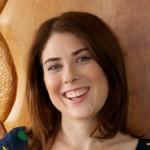Musings from Students of the Pardes Institute of Jewish Studies in Jerusalem
Posted on June 7, 2013 by Aileen Heinberg
I presented this dvar torah at the Pardes Center for Jewish Educators commencement ceremony on Wednesday:
 Almost two whole years ago, as we were first settling in at Pardes, a classmate looked around the room at our PEP cohort and said, “Wow, we are a group of very different personalities.” And it’s true; we all do have very different perspectives.
Almost two whole years ago, as we were first settling in at Pardes, a classmate looked around the room at our PEP cohort and said, “Wow, we are a group of very different personalities.” And it’s true; we all do have very different perspectives.
In this week’s parasha, Korach, we see the clash of some very different personalities. Korach and his allies question Moshe and Aharon’s right to lead Bnei Yisrael and are duly punished.
Pirkei Avot 5:17 presents Korach and his allies as an example of how not to argue:
| כָּל מַחֲלוֹקֶת שֶׁהִיא לְשֵׁם שָׁמַיִם, סוֹפָהּ לְהִתְקַיֵּם. וְשֶׁאֵינָהּ לְשֵׁם שָׁמַיִם, אֵין סוֹפָהּ לְהִתְקַיֵּם. אֵיזוֹ הִיא מַחֲלוֹקֶת שֶׁהִיא לְשֵׁם שָׁמַיִם? זוֹ מַחֲלוֹקֶת הִלֵּל וְשַׁמַּאי. וְשֶׁאֵינָהּ לְשֵׁם שָׁמַיִם? זוֹ מַחֲלוֹקֶת קֹרַח וְכָל עֲדָתוֹ. |
Any dispute that is for the sake of Heaven will have a constructive outcome. But one that is not for the sake of Heaven will not have a constructive outcome. Which is a dispute for the sake of Heaven? The dispute between Hillel and Shamai. And which was not for the sake of Heaven? The dispute of Korach and his entire company. |
Pirkei Avot sets up a contrast between two different types of disputes. The more constructive disputes are those that are for the sake of Heaven, as exemplified by Hillel and Shamai, sages who disagreed on many points of halachah. According to the Meiri, Hillel and Shamai argued out of a desire to get at the truth. They weren’t trying to win just for the sake of winning and weren’t seeking personal glory. Korach and his allies, on the other hand, exemplified conflict with no constructive goal. According to the Meiri, when Korach and his company questioned Moshe and Aharon’s authority, they were driven by no higher purpose than jealousy and a desire to win. While Korach and his company’s acting out had no enduring value, we still study the fruits of Hillel and Shamai’s clashing opinions today.
The right type of disagreement can help sharpen thinking and advance knowledge. Danny Kahneman, a psychologist and winner of the Nobel Prize in Economics, recommends what he calls “adversarial collaboration,” in which scientists who disagree and start off with different hypotheses conduct research together. His rationale is that when people with different perspectives work together, they challenge each other, sharpen each other’s thinking, and help each other grow.
Here at Pardes, I’ve had the privilege of experiencing a similar type of constructive tension. Some of my best Pardes moments were right here in this beit midrash, when my chevruta and I didn’t see eye-to-eye. As we wrestled with a text together, we may have even raised our voices a bit, caught up in the excitement and momentum of discovery.
Those moments of immersion and engagement in study with some wonderful chevrutas wouldn’t have been possible without Rav Daniel Landes. For two years, he taught me not only how to learn but also how to love learning. And I never doubt for a second that he truly cares about me as a person, not only as a student.
Aviva Golbert has been a role model as a creative educator and caring person. Knowing she was always there in my corner made all the difference.
Rabbi and Dr. Daniel Roth generously mentored me in a variety of ways that fell well beyond his job description. If not for his influence, I probably wouldn’t have thought of speaking about conflict today.
When I approached Dr. Judy Markose about a project combining psychology and Jewish text study, she provided wholehearted support. Thank you for making my labor of love possible as well as for your continued guidance.
Rabbi Zvi Hirschfield, thank you for your guidance on the project, even during a difficult time.
And Gail Kirschner, thank you for making everything run smoothly, always with a smile.
Then there’s my cohort: Avi, Eitan, Hanna, Ilan, Stu. Everyone who was formerly in cohort 12 or is just in my shiur and feels like part of my cohort, I’m including you here, too. We might be a mixed bunch of very different personalities, but we’re also a family. And I like to think we’ve helped each other grow both inside and outside of the classroom over the past two years. It’s been a privilege to know you and to study with you guys even, and sometimes especially, when we disagree. Thank you.